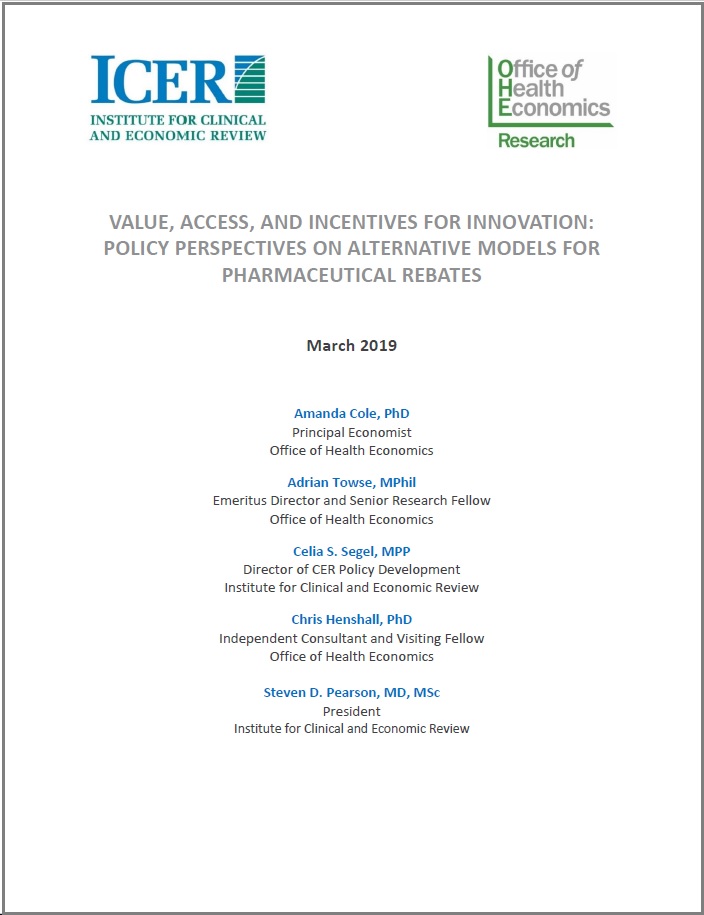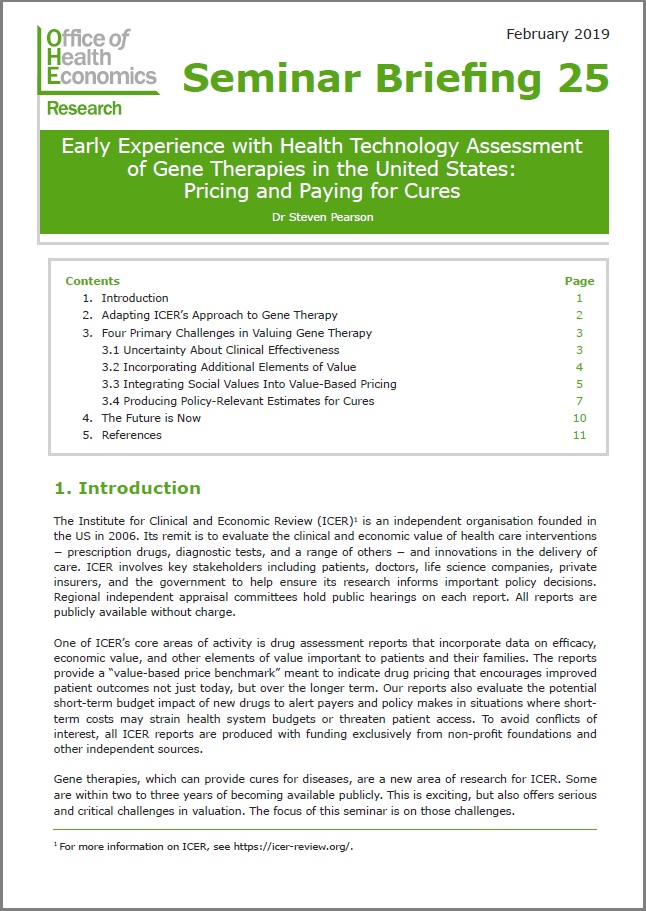OHE has published a Briefing by Karlsberg Schaffer, Sussex and Feng summarising the evidence on incentives that encourage providers of health care to follow guidance on best practice.
There has been long-standing interest in the use of incentives to encourage delivery of high-quality health care services at the lowest feasible cost. Although it is clear that health care professionals have intrinsic incentives to deliver high-quality care to patients, there are significant variations in quality standards achieved in practice, indicating that a desire to see patients thrive is on its own insufficient to ensure uniformly high standards of care. It is important that the health system provides incentives to add to intrinsic motivation.
OHE has published a Briefing by
Karlsberg Schaffer, Sussex and Feng summarising the
evidence on incentives that encourage
providers of health care to follow
guidance on best practice, particularly where that guidance requires the use of specific medicines or other health technologies. These incentives include
monetary and non-monetary rewards.
In the first section of the Briefing, the authors report the results of a review of empirical evidence on the impact of incentives for best practice that have been in operation in health services in the UK and other high-income economies. Where it was feasible to pick out evidence on particular incentive schemes from the literature, these are categorised according to setting; type of financial incentive; domain (clinical or patient experience); number of studies; direction of effect; and quality of evidence.
In the second section, the authors describe incentives for best practice that are currently in place in the NHS, particularly in England, in primary and secondary care respectively. Programmes of incentives for which there is good published evidence of their impact include the Quality and Outcomes Framework (QOF) in primary care and CQUINs and Advancing Quality in secondary care.
The authors then use the information presented in the previous sections to consider the extent to which health care in the UK might be improved by using additional or modified incentives to encourage providers to follow best-practice guidance. With regard to financial incentives in particular, the Briefing lists a number features of pay-for-performance programmes that are associated with positive results, including use in chronic care (as opposed to acute care) and incentivising clinical outcomes (rather than those relating to patient experience).
The authors end by stating that, although the evidence is far from conclusive, there appears to be scope for the introduction of additional policies and the modification of current incentives to reduce variation in, and improve average levels of, adherence to best-practice guidance.
The OHE Briefing may be downloaded free
here.


